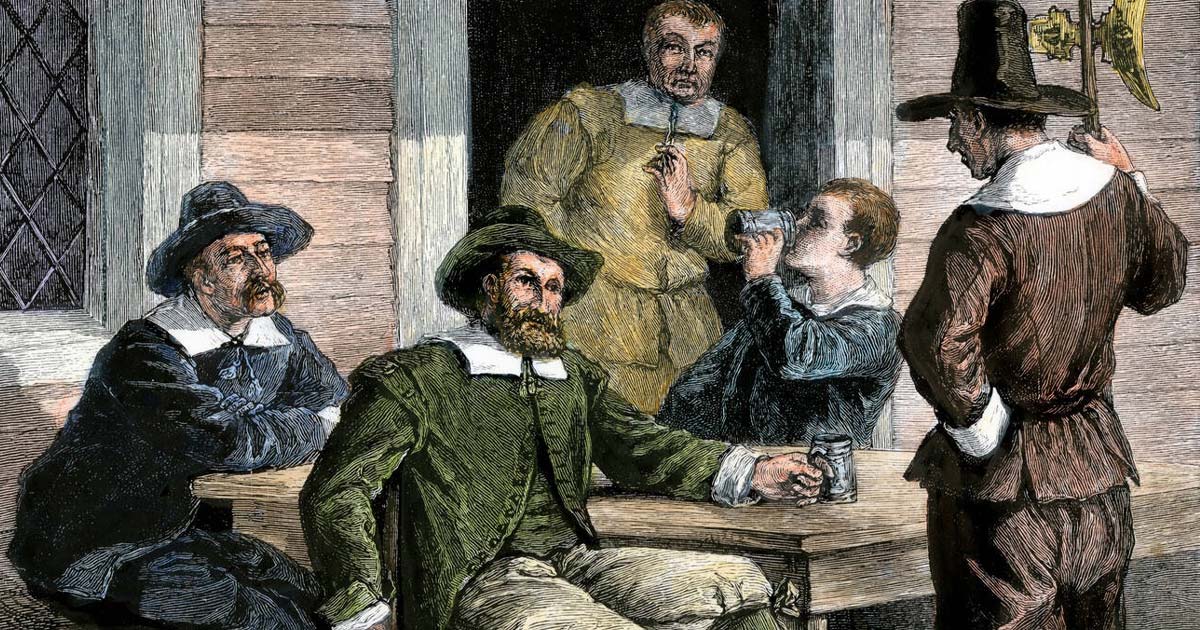
The Puritans arose during the spiritual uprising of the English Reformation. They were persecuted by both the Catholic Church and the crown of England. These Christian reformers eventually migrated to the Americas, in search of religious freedom.
While history often forgets these people, they really are responsible for the foundations upon which the United States is built.
As one of the first groups to settle in the New World, the Puritans had a significant impact on the development of American society. With their strict religious beliefs and commitment to living a simple, God-centered life, the Puritans embodied a unique approach to living that helped shape the values and culture of early America.
PURITANS IN THE NEW WORLD
Life for the early settlers wasn’t easy; but the Puritans were willing to take the risk in pursuit of their Christian faith. They helped build the new world, based on Biblical principles of family and faith, and their faith helped them make it through some pretty tough times.
At the heart of Puritan living was a strong commitment to their Christian faith. The Puritans believed that the Bible was the ultimate authority on God’s will and that it provided guidance on all aspects of life. They saw themselves as God’s chosen people called to live a holy and obedient life following His teachings.
Another key aspect of Puritan religious beliefs was their focus on simplicity and modesty. They believed that material possessions and worldly pleasures were distractions from God’s will and that a simple, frugal lifestyle was the best way to focus on spiritual matters. This belief was reflected in their dress and lifestyle, which were characterized by plain, functional clothing and a lack of luxuries.
How the Original Puritan American Settlers Lived
A key aspect of Puritan living was a strong work ethic. The Puritans believed that hard work and diligence were essential for fulfilling God’s will and living a virtuous life. They saw labor as a form of worship, and believed that all work – whether it be farming, trade, or crafts – was valuable and necessary for the good of the community.
Puritan communities were primarily agricultural, and most families lived on small farms that provided their own food and goods. Farming was a central part of daily life, with families working together to cultivate crops, care for livestock, and maintain their land. Other occupations, such as blacksmithing, carpentry, and shoemaking, were also important in Puritan society, with skilled craftsmen playing a vital role in producing goods for the community.
Puritan daily life was highly structured and regulated by religious practices. The Puritans believed in the importance of regular prayer and attendance at church services, which were held multiple times each week. Sundays were considered a day of rest and worship, with families gathering for religious services and spending time together at home.
In addition to religious practices, Puritan daily life was focused on work and productivity. Families typically rose early in the morning and began their daily chores, such as preparing meals, tending to the animals, and maintaining the home and farm. Children were expected to help with these tasks from a young age, learning the skills and habits necessary for a productive, God-centered life.
Puritan living was characterized by a strong commitment to religious faith, a highly structured social hierarchy, a strong work ethic, and a focus on simplicity and modesty. Their beliefs and values had a significant impact on early American society, shaping the cultural, political, and economic landscape of the New World. While the Puritan way of life may seem rigid and restrictive to modern cultures, it played a vital role in shaping the values and ideals on which America was built.






